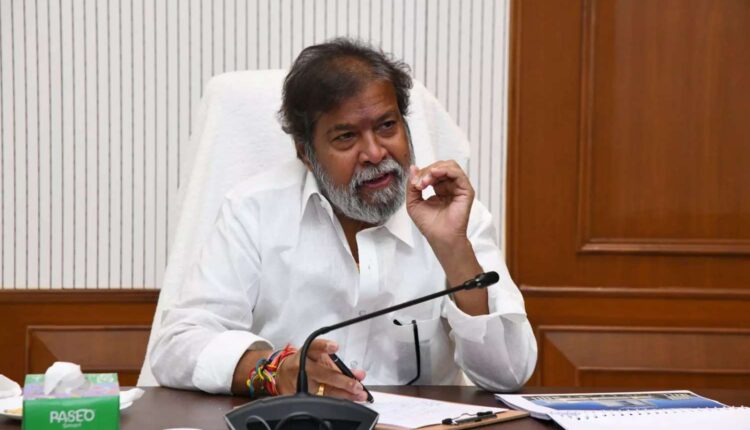Hyderabad: Telangana Health Minister Damodar Rajanarasimha on Wednesday directed senior health officials to expand geriatric services across all government general hospitals. He cited the state’s growing number of older people.
During a review meeting at the Indian Institute of Health and Family Welfare in Hyderabad, the minister instructed district medical and health officers (DMHOs), hospital superintendents, and programme heads. They are to ensure each facility delivers dedicated care for people in later life. He also urged immediate public outreach to raise awareness about geriatric wards, which already operate in all general and district hospitals.
Health Secretary Christina Z Chongthu, Director of Medical Education Narendra Kumar, TVVP Commissioner Ajay Kumar, and Director of Health Ravinder Nayak participated in the meeting. Rajanarasimha explained that improved living standards have increased life expectancy, which now requires a stronger focus on healthcare for ageing populations. He suggested that India might soon need specialised hospitals for older adults, like those in Japan and Italy.
“We have child health centres. Similarly, we must prepare for institutions that focus on older people,” he said. “Every hospital should be equipped to address the physical and mental health challenges that come with age.” The minister also directed DMHOs to identify patients aged 60 and above who need medical support. He wants to ensure they receive free care at public hospitals.
Geriatric services in public hospitals a growing priority
Rajanarasimha cautioned hospital administrators that both attendance and service standards were under strict scrutiny. He condemned the previous government for abandoning unfinished healthcare infrastructure. By contrast, the current administration had recruited over 9,000 healthcare personnel in two years, with 7,000 more positions in progress.
“We’ve deployed both staff and facilities. Now it’s up to hospital leadership to ensure efficient service,” he said. He promised strong disciplinary action for negligence, while pledging support for dedicated officers. Those unfairly targeted for enforcing discipline would receive government protection.
The minister also highlighted changing disease trends. “Non-communicable and lifestyle-related illnesses are now more common than infectious ones,” he said. He added that the government had already opened NCD clinics, day-care cancer centres, and IVF units. It is now scaling up geriatric care. “Our goal is to strengthen public hospitals to manage diabetes, hypertension, cancer, heart, and kidney diseases effectively,” he said.
Action ordered against exploitative private hospitals
Rajanarasimha ordered health authorities to take strict action against private hospitals exploiting patients. He identified IVF clinics, pain management centres, and rehabilitation facilities as frequent offenders. He also demanded full enforcement of the Clinical Establishments Act. Additionally, he called for stronger coordination between medical education, TVVP, public health, and NHM departments.
He proposed setting up coordination committees at the local level. Expressing concern over the rise in caesarean deliveries, he instructed officials to encourage normal births. They should also keep a close watch on hospitals with unusually high C-section rates.
He also insisted that patient referrals must stay within the government hospital system. All public health facilities from sub-centres to general hospitals must operate in coordination. “No patient should be referred outside the government network,” he said. “All essential treatments must be made available within public hospitals.”

